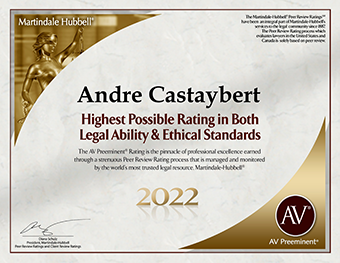Readers looking for a short overview of the litigation process in state and federal courts in New York can consult the article linked here by Dewey Pegno & Kramarsky LLP. The article succinctly explains the structure of the civil court system, the roles of judges and juries, limitations, pre-action considerations, commencement of proceedings, evidence presentation, interim remedies, available remedies, enforcement mechanisms, class actions, appeals, and recognition and enforcement of foreign judgments, among other topics.
For information about how CASTAYBERT PLLC can assist you with commercial litigation and arbitration, click here and here.







